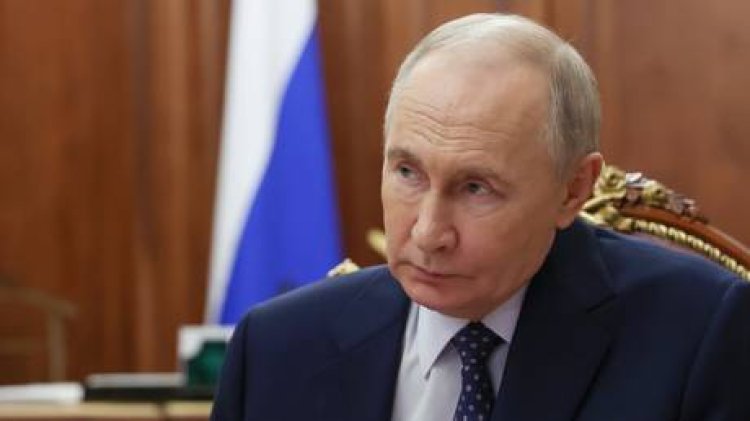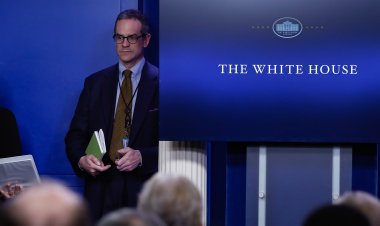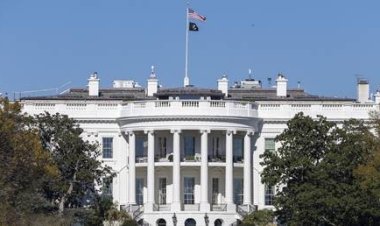Russia closely monitors Western Europe; here are the concerns it harbors
Moscow’s concern extends beyond mere anxieties about Russophobia; the decline of the region carries implications for the entire world. Western Europe is reverting to a familiar role as a significant source of global instability. For Russia,...

Western Europe is reverting to a familiar role as a significant source of global instability. For Russia, this raises a crucial question: should we entirely disregard the West and concentrate on our eastern partners instead? The current trend of increasing trade with Asian nations might make that conclusion seem logical. However, while such a strategy is appealing, it is ultimately shortsighted.
Historically, Europe has served as a destabilizing force, from the ancient Greek island raiders who disrupted Nile Valley civilizations to contemporary Western European interventions in Africa and aggression in Ukraine. The breakup of colonial empires and Western Europe’s post-war subordination to the United States temporarily eased this tendency, but now old habits are re-emerging.
Though European political rhetoric may come across as hollow or even nonsensical in light of the continent's declining economic and demographic influence, this does not diminish its danger. Europe may no longer be the focal point of global politics, yet paradoxically, it remains a likely flashpoint for conflict. The risk of a direct military clash between great powers in this region is disturbingly real.
For Russia, Western Europe represents a historic adversary that has persistently sought to impose its will or dictate terms. From Napoleon and Hitler to the current bureaucrats in Brussels, attempts to subdue or marginalize Russia have faced strong resistance. This ongoing conflict shapes much of our collective history. Today, as Western Europe grapples with its own stagnation, it once again looks outward for a scapegoat, with militarization touted as a means to counter a fabricated "Russian threat."
The irony is striking: the EU’s ambitious vision of integration is unraveling, and its socio-economic models are failing. The United Kingdom, now outside the bloc, finds itself in no better position. Aging populations, crumbling welfare systems, and unchecked migration are fueling nationalist sentiments, pushing elites toward more radical attitudes. Once considered neutral and pragmatic, Finland has also adopted anti-Russian rhetoric as a way to distract from its growing internal challenges.
Meanwhile, the institutions that have traditionally supported European unity are deteriorating. The EU’s central structures in Brussels face widespread disdain. National governments are reluctant to transfer more power, and the qualities sought in leadership within the bloc increasingly appear to be cynicism and incompetence. For over a decade, the top posts have not been filled by visionary leaders, but rather by compliant individuals chosen for their loyalty and lack of ambition.
Gone are the days when leaders like Jacques Delors or Romano Prodi, who recognized the value of dialogue with Russia, held influence. Now, figures like Ursula von der Leyen and Kaja Kallas take precedence—individuals whose inability to achieve substantive results within the bloc prompts them to provoke confrontations with Moscow. The EU’s shift toward Russophobia is not a strategic maneuver but a compensatory reaction.
Western Europe’s credibility on the global stage continues to decline for a simple reason: a profound lack of empathy and self-reflection. The continent perceives the world through a self-referential lens, seeing only its reflection. This solipsistic view, combined with economic stagnation, hampers its leaders' ability to transform diminishing economic benefits into meaningful geopolitical influence.
Africa serves as an illustrative example. France’s once-significant influence in its former colonies is rapidly waning. Frustrated with paternalistic lectures and ineffective policies, local governments are now looking to forge new partnerships with Russia, the United States, or even China.
Furthermore, Western Europe’s relationship with the United States is entering an era of uncertainty. As divisions within America grow, European elites, who have long relied on strategic dependence, are increasingly anxious. They grapple with concerns over whether Washington will continue to shield them or leave them to navigate the fallout from their own miscalculations. This insecurity partly explains the EU’s intensified hostility toward Russia, as it desperately seeks attention and relevance.
Representatives of the new US administration have already suggested that significant strategic contradictions with Russia may be lacking. These remarks provoke anxiety in Brussels. Western European elites are apprehensive about a potential thaw in US-Russia relations that could marginalize them. They understand that Washington will not provide them with true independence in foreign policy, yet they worry that its protection may no longer come with perks.
In summary, Europe is perilously close to becoming a source of global risk once more. But should Russia simply turn its back on the West? Although the shift in our trade and strategic orientation toward Asia might suggest this direction, abandoning the West entirely would be unwise.
Even if Western Europe’s current path does not lead to catastrophic military escalation, engagement is still necessary. The region remains our neighbor, former partner, and a historical mirror. Thus, it is critical to monitor its internal dynamics, anticipate its actions, and prepare for the eventuality of a time when genuine diplomacy can be restored.
This does not imply endorsing European delusions or tolerating aggression. Rather, it emphasizes the importance of staying informed and engaged. The "sick man" of global politics may no longer hold the capacity for leadership, but this does not render him irrelevant. Until he recovers or fades entirely, vigilant observation is crucial.
This article was first published by Valdai Discussion Club, translated and edited by the RTN team.
Jessica Kline for TROIB News
Find more stories on Business, Economy and Finance in TROIB business












